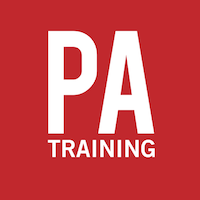
Course overview
Report writing is changing, with much of it now going totally online. That means you have to write it in a sharper way to ensure the target audience reads it and reacts to it. It also demands that you take up less space and use words differently to satisfy the demand for instant information.
Who the course is for
Everyone who writes reports and finds it hard to get started, as well as those having problems in condensing down a large amount of information and structuring it so that it keeps people reading.Learning objectives
- Understanding your potential readers
- Refining large amounts of information into sections
- Getting started: what do I need to say first?
- Structuring your information within each section
- Getting the words right
- Fact and comment
- Writing section headers that make readers want to know more The things to avoid
Course outline
Understanding your potential readers- You need to know whether your target audience is scientists or bus drivers, accountants or people with learning difficulties – and write for them accordingly. But because you are pitching at an educated readership doesn't mean using lots of long words, technical jargon and long sentences. Make it easy, and they are far more likely to read than if you pitch the writing at the uppermost limit of their comprehension. Do you truly know who the readers are?
Refining large amounts of information into sections
- It's daunting to be faced with days, weeks, months of researching. How willI condense this all down? What if I leave out some key point? We show you simple systems to help you decide what's vital, important and optional, where it should go and how to ensure you've covered all the key areas.
Getting started: what do I need to say first?
- So many report writers stare at a blank screen for hours, wondering how to get started. This course will help you overcome that inertia and give you confidence to get started in saying what you want.
Structuring your information within each section
- As well as ensuring that you've placed the important information within the correct section, it's also crucial to structure that data within each section. These days, most readers are skippers (read, skip, read, skip), so each time they skip to a new section, we need to grab their attention, and hold it for as long as possible by creating a logical argument that keeps them reading. We'll show you how to do this.
Getting the words right
- Using the right words for your audience is vital. If it's an unfamiliar word to them, they won't go and look it up in a dictionary. They'll turn away. Some technical swords are unavoidable, but do your potential readers really talk about utilising a pen, eschewing the accepted synergies or the dichotomy within the industry? Write as they speak is a very good lesson. But are you doing so? We'll show you the words and expressions to avoid, and why.
Fact and comment
- It's important to distinguish between fact and comment, but too many reports blur the distinction or treat them as one and the same. If we are commenting, is it clear that we are doing so, or are we attributing this? Some comment is probably desirable – but is it clear to readers that we are not passing this off as fact?
Writing section headers that make readers want to know more
- You can make people reader more of your report by writing section headers that are more than dull single words like details, progress, background and the future, and instead use verbs and calls to action that make them want to know more. This is a very modern way to enhance reports and all research shows that it results it far more of a report being read.
The things to avoid
- A list of the things that turn readers off. How does your report-writing compare?
Our partners, Press Association Training will be delivering this course on behalf on Journalism.co.uk.
Getting there
This course will be held at Press Association 292 Vauxhall Bridge Road London SW1V 1AEAbout Press Association
The Press Association (PA) is the national news agency for the UK and Ireland and a leading multimedia content provider across web, mobile, broadcast and print. For the last 147 years PA has been providing fast, accurate feeds of text, data, photos and video. Today the business is increasingly focused on the delivery of complete products for both digital and print clients.
The Press Association Training courses are specifically tailored to ensure they include the very latest developments in the rapidly changing world of the media.
All of PA's trainers are working journalists or PR professionals with the most up-to-date knowledge who always shape courses to the individual needs of those attending.









